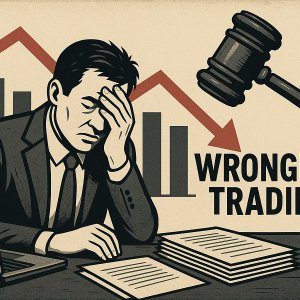Directors Disqualification case law principles - Wrongful trading - Re Taylor
The "No Reasonable Prospect" Principle
Allegations of Wrongful Trading and how they impact on a director alleged to be unfit to act as a director under The Company Directors Disqualification Act 1986 - The legal principles.
Technical insolvency does not trigger unfitness within the meaning of Section 6 of the Company Directors Disqualification Act 1986 when seeking a disqualification order. Through temporary cashflow crises, many companies are unable to pay their debts. Equally, many companies can only continue to trade with the support of their bankers. Without more, reasonable and competent businessman would not find anything repugnant in continuing to trade in such circumstances. Doing so would not and does not, of itself, render a director unfit.
Technical insolvency on either basis (ie balance sheet or cashflow) is only the beginning of the inquiry, not the end. Were it otherwise, especially in recessionary times, the burden on directors would be prohibitive and, itself, against public interest. Likewise, "trading to the detriment of creditors" is a meaningless phrase in the context of a Section 6 application. Often, evidence against a respondent comprises many paragraphs directed at establishing insolvency without going on to explain why or on what grounds it is alleged the respondent was unreasonable when he caused the company to continue to trade.
The point can be seen readily in the following statement of Chadwick J of what constitutes "wrongful trading" in Secretary of State for Trade Industry -v- Taylor (1997) I WLR 407 (at 141f-h).
"The companies legislation does not impose on directors a statutory duty to ensure that their company does not trade while insolvent: nor does that legislation impose an obligation to ensure that the company does not trade at a loss. Those propositions need only be stated to be recognised as self evident. Directors may properly take the view that it is in the interests of the company and of its creditors, that although insolvent, the company should continue to trade out of its difficulties. They may properly take the view that it is in the interests of the company and its creditors that some loss-making trade should be accepted in anticipation of future profitability. They are not to be criticised if they give effect to such views, properly held. But the legislation imposes on directors the risk that trading while insolvent may lead to personal liability. Section 214 of The Insolvency Act imposes that liability where the directors knew or ought reasonably to have concluded that there was no prospect that the company would avoid going into insolvent liquidation.
If it is established in proceedings under Section 6 of the Company Directors Disqualification Act 1986, that a director has caused a company to trade when he knew or ought to have known that there was no reasonable prospect that the company would avoid going into insolvent liquidation that director may well be held unfit to be concerned in the management of a company."
In other words, for the applicant to make out his case, he must set out why there was "no reasonable prospect" at the time in question. The test is what a reasonably diligent person in the position of the particular respondent should have known or ascertained. The Court must consider the knowledge skill and experience which someone in the respondents position should have had and also the knowledge skill and experience which he did have.
Would you like us to give you a call?
Fill in the form and we'll give you a call as soon as we can to discuss your needs in a free initial consultation with a Licensed Insolvency Practitioner. Alternatively give us a call on 01326 340579 if there is an urgency to your needs.
The information provided will be used solely to contact you and any information you provide will be held in accordance with our firm's privacy policy, and not used for marketing purposes.






